Organic Gardening and Pest Control
Organic gardening and pest control means using methods to use in your vegetable gardening that will attract beneficial insects and birds to protect your produce.
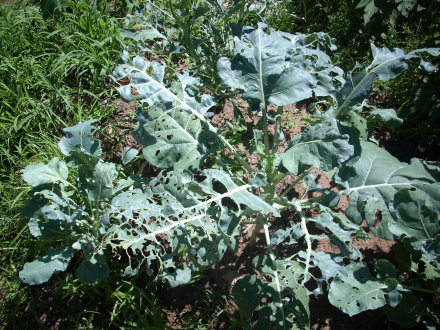
Pest control and the way you treat it in your organic garden are a lot like treating people. All are hit hardest with disease and parasites when their immune systems are weaker.
In the same way, plants that are malnourished are more likely to be attacked by disease and insects.
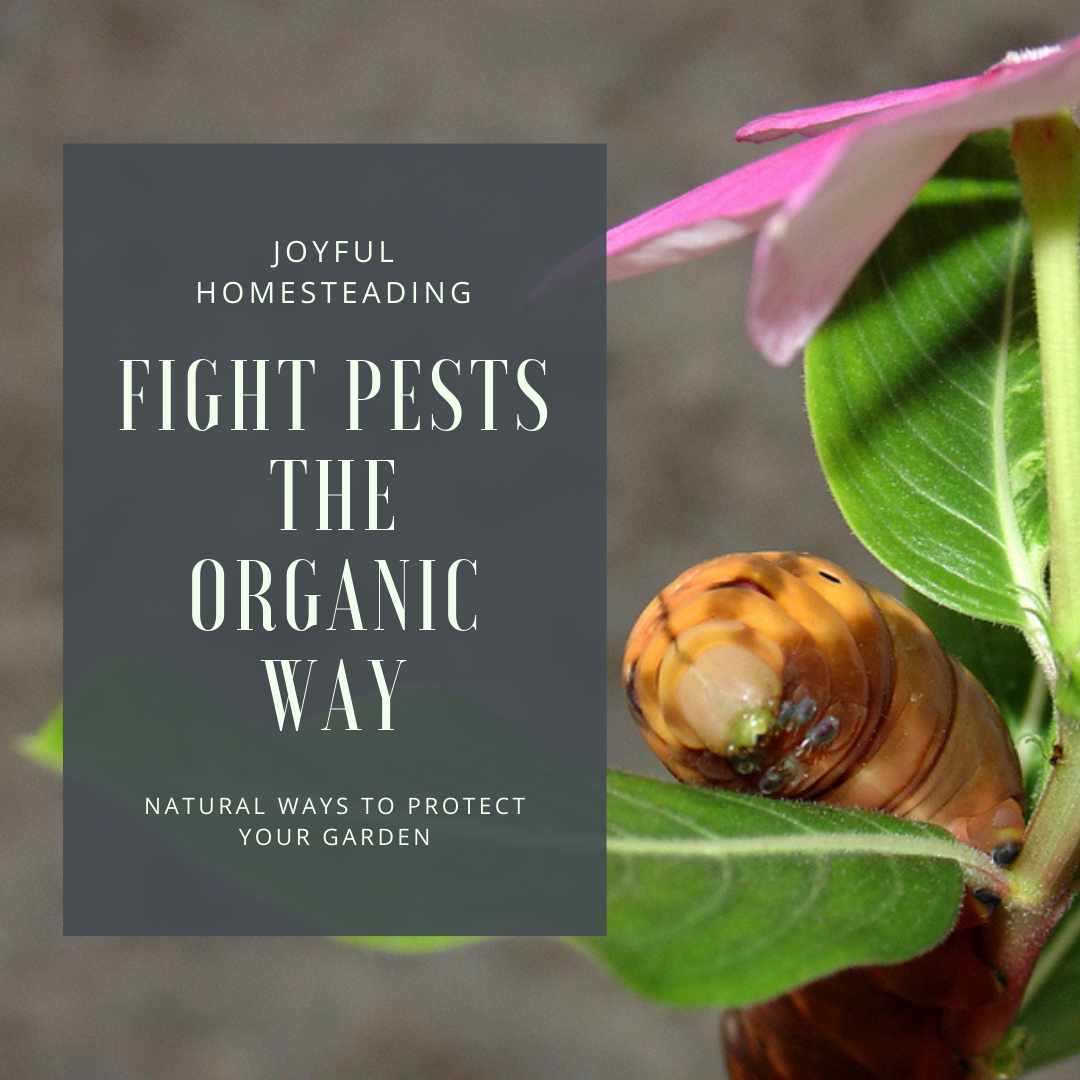
The best "natural pesticide" in your organic gardening arsenal is to provide the healthiest soil possible.
By introducing beneficial insects into your garden, you can protect your
broccoli from pests such as the cabbage loopers that ate the plant in
the picture below.
So for natural pest control, put plenty of compost in your raised beds and add more throughout the growing season.
But even under the best of circumstances, your organic flower or vegetable garden will be attacked by nasty bugs.
So what should you do?
Organic Gardening and
Pest Control
Call in the Calvary
Nature provides its own pest control in the form of beneficial birds, toads and insects.
With a little planning, you can keep destruction from insects down to a minimum.
Remember the Mother Goose rhyme about "the dog that worried the cat,
that killed the rat, that ate the malt, that lay in the house that Jack
built"?
Like that poem, all of nature is interconnected. Destroy one element of
it with a pesticide, and all other things become out of kilter.
Instead, strengthen your organic vegetable garden by providing plenty of
compost.
Also, while planting the vegetables you want, plan on planting a few
extra flowers and herbs that will provide your organic garden with a
natural organic gardening pest control against harmful insects.
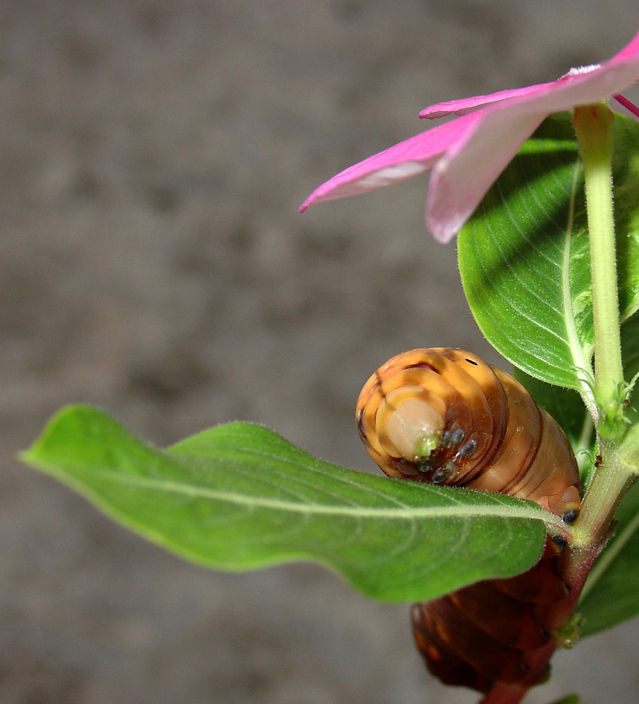
Organic Gardening and Pest Control: Buckwheat
For purposes of organic gardening pest control, buckwheat is a grain
that is usually grown as food, but beneficial insects like it as well.
You won't need to plant much - just one-fourth of a pound or so will do.
Plant it early in the spring, as buckwheat prefers cooler temperatures and will die in the heat of the summer.
Buckwheat can also be grown as a green manure crop.
You can find the seed online through different sprouting companies.
Organic Gardening and Pest Control: Dill
An herb that's supposed to be good for the stomach, it's also darned good for making pickles. We love making fresh pickles from cucumbers and dill that we've picked from the garden. Plus, the good bugs love it, so be sure to devote a little space for this wonderful plant as a natural organic gardening pest control.
Organic Gardening and Pest Control: Borage
This is also an herb that produces bright blue, star-shaped flowers.
It smells a bit like cucumber and its leaves are good in salad.
The fresh leaves of the borage plant used to be used as a remedy for melancholy and to give strength.
It also works as a diuretic.
Pick borage leaves only on a sunny day, when the plants are free of dew
and eat them fresh, or just leave them in your garden as a natural
beneficial insect feeding station.
Organic Gardening and Pest Control: Calendula
These wonderful, aromatic flowers are also known as pot marigolds, but are not true marigolds.
They have marvelous healing properties and can be used topically to heal lacerations, abrasions and skin infections.
Beneficial insects also love these flowers and are drawn to them, so have plenty on hand.
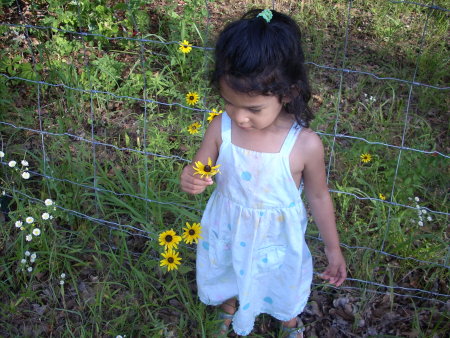
Wildflowers attract beneficial insects that protect your garden.
Organic Gardening and Pest Control: Cosmos
No, not Carl Sagan's vision, but rather the flower.
They produce gorgeous blossoms in brilliant shades of yellow, red and orange.
Also, they're easy to start from seed and thrive on a bit of neglect, a real plus for the beginning gardener.
They work great in both fresh cut and dried flower arrangements and help with pest control in your vegetable garden.
A definite win-win situation.
Yarrow
This is a perennial, so give some thought to where you want to plant it,
as you may have this wonderful herb for quite some time.
It does tend to take over, so you'll want to be vigilant about picking it.
But this shouldn't be a problem in that in addition to a natural organic gardening pest control, yarrow has medicinal uses.
A leaf rolled up and applied to the nostrils is supposed to stop a nosebleed.
Also, yarrow tea is a good remedy for colds.
Sweet Alyssum
This is often planted as a ground cover.
It only grows a few inches high but can spread out as far as a foot.
In addition to providing organic gardening pest control, the plant produces delicate flowers with a wonderful fragrance.
Bees, butterflies and birds love this flower, and so will you.




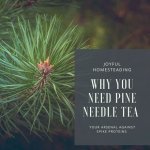


New! Comments
Have your say about what you just read! Leave me a comment in the box below.